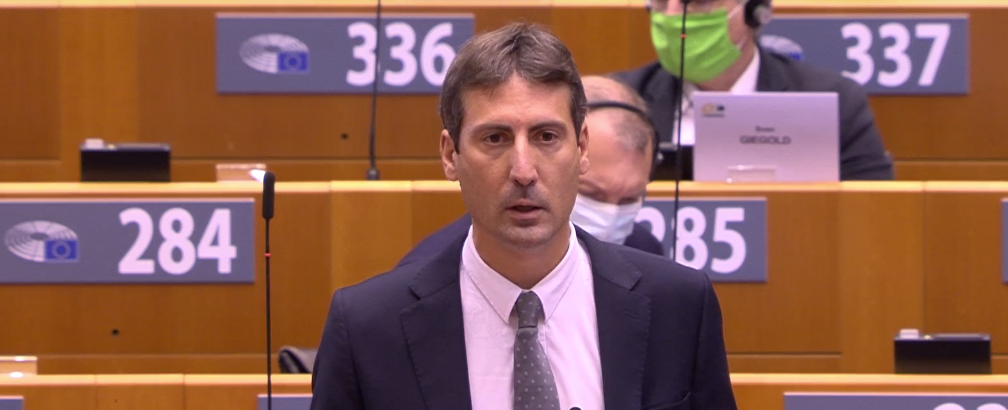27.10.2021 - 07:31
|
Actualització: 27.10.2021 - 09:31
The Self-Determination Caucus (Facebook and Twitter) has already unveiled its first initiatives at the European Parliament. The group consists of nine MEPs whose aim is for the European Union to accept and regulate a mechanism through which the right to self-determination can be exercised within EU borders. This framework would lay down processes which do not result in states engaging in violence. VilaWeb interviewed Jordi Solé (ERC/Greens-EFA), one of the MEPs behind the Caucus, to discuss the project.
—What is the Self-Determination Caucus exactly?
—An informal, unofficial group of MEPs. We wish to take the debate on self-determination to the European Parliament and reach an agreement as to the conditions under which it can be exercised in the EU. We are from Corsica, Ireland, Catalonia and the Basque Country. We are François Alfonsi (Femu a Corsica/Greens-EFA), Pernando Barrena (Bildu/ EU), Izaskun Bilbao (PNB/Liberals), Toni Comin (Lliures per Europa/non-attached member), Chris MacManus (Sinn Féin/EU), Clara Ponsatí (Lliures per Europa/non-attached member), Carles Puigdemont (Lliures per Europa/non-attached member), Diana Riba (ERC/Greens-EFA) and Jordi Solé (ERC/Greens-EFA).
—Are you looking to draft a European clarity law in keeping with Canada’s Clarity Act?
—We call it the European Democratic Mechanism for Clarity (DEMOC). We’re not calling it a law because at present we don’t want to specify precisely what it is. We are proposing the idea that it ought to be possible to exercise self-determination processes in the EU, within a framework of principles and procedures. It remains to be seen whether that means passing a law or something else. We want to agree on a framework within which self-determination can be exercised in a civilized, democratic manner, without state violence.
—What limits should this framework have? The turnout in a vote? The conditions under which a referendum can be held?
—These details will become clear with the help of legal and academic collaboration. But the starting point is the following: there are two ways to approach the management of conflicts related to sovereignty. One is with democracy, dialogue and negotiation, and the other is with violence, denial and repression. We believe that within the framework of the European Union, the Treaties and the Charter of Fundamental Rights, the latter approach ought to be excluded and prohibited. Who can exercise self-determination? Under what conditions? How should negotiations be held? Under what democratic mechanisms should it be set in motion? We won’t go into details as to the turnout yet, but eventually these questions will need to be addressed. And we need to be aware that all demands for self-determination have something in common, though every case is different. We wouldn’t want the question of holding a referendum in the EU to be one size fits all, or for the threshold to be the same in every case. I believe that this degree of detail isn’t necessary. But a general framework is needed. And there’s something else.
—What’s that?
—The mechanism ought to include a fast-track option, a means by which territories which are already within the European Union which become a state can maintain their EU member status. In other words, it should include an internal enlargement mechanism, which means that territories that are now part of the EU become states. A fast-track option ought to be devised in order to avoid a deadlock. Having a hypothetical Catalan Republic join the EU isn’t the same as having Serbia join. The situations are quite different.
—What is the proposed timetable and steps that need to be taken?
—A conference on the future of Europe is currently underway. It started in May and ends next April. It’s an exercise in citizen participation, in which institutions will also play their part, to reflect on and debate the future of the EU. A place to reflect on what the EU ought to do, and not do. We would like the Mechanism for Clarity to be discussed and for it to form part of the conference’s conclusions. I am one of three MEPs who are part of the caucus and the conference on the future of Europe: Pernando Barrena (Bildu), Carles Puigdemont (Lliures per Europa) and myself (ERC). We will try to ensure that it is debated in a plenary session and that it is included in the conclusions. We appreciate it won’t be easy, as we need to reach a consensus.
—And after the conference?
—At present we have three events planned in the European Parliament. We will start with the Catalan case in November, Corsica in January and, finally, the Basque case. We also want to start a dialogue with European and international specialist academics.
—Will Scotland be able to play a part, or is it no longer possible after Brexit?
—The case of Scotland sets an example of an agreed referendum. And secondly, Scotland has announced another referendum that not only paves the way for independence, but for their return to the EU. A kind of double self-determination vote.
—What obstacles do you foresee on the path you’ve decided to take?
—They will be the obstacles of a political edifice like the European Union, still very much based on the power of the states, who want to retain as much sovereignty as possible. We know that one of the arguments is the classic: “These are internal matters which have nothing to do with the EU.” We are well aware that a long, winding road littered with hurdles lies before us. We know that when one has an idea, it can take a long time to materialize in the context of the European Union. The main thing is that we get to voice this need.


